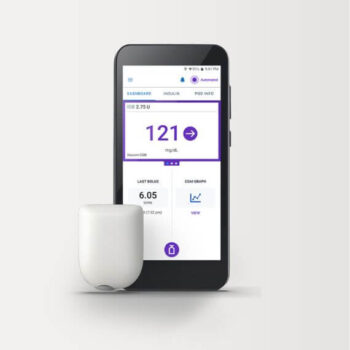Table of content
Introduction
‘Foods to Avoid While Taking Metformin’ has become a hot topic among diabetic patients. As Type-2 Diabetes Mellitus prevails exponentially worldwide, the associated diet and management plan and side effects of medicines have also become essential matters of discussion.
Metformin may cause some side effects if taken with certain food items. In this article, we discussed some foods that must be avoided if you take Metformin.
Diabetes Mellitus is a disease that is caused due to improper production of insulin in your body. The primary function of insulin is to convert glucose in your blood into glucagon that your body can store in a less hazardous form.
Based on the dependency on insulin, this disease is categorized into two types; Type-1 Diabetes Mellitus and Type-2 Diabetes Mellitus. People having Type-2 Diabetes Mellitus do not start taking insulin at the initial stages. The most common medicine for this purpose is ‘Metformin’. The dosage may vary from patient to patient.
What is metformin?
Metformin is a widely prescribed oral medication used to manage Type 2 Diabetes Mellitus (DM). It belongs to the biguanide class of drugs. It primarily reduces glucose output from the liver and improves insulin sensitivity in muscle and fat tissues, leading to lower blood glucose levels.
Metformin does not stimulate insulin production from the pancreas, unlike other medications used for DM treatment, making it an effective option for patients with Type 2 DM.
Obesity is a significant risk factor for developing Type 2 DM, and Metformin has been shown to be particularly effective in managing the disease in obese patients. Its ability to reduce insulin resistance and lower blood glucose levels also helps with weight loss in these patients.
Additionally, Metformin has been shown to have beneficial effects on lipid profiles and cardiovascular outcomes in patients with Type 2 DM. Metformin is sold under various brand names, with Glucophage being the most commonly used. It is available in both immediate-release and extended-release formulations.
The dosage of Metformin is adjusted based on the patient’s blood glucose levels, and it is generally well-tolerated by patients.
Metformin’s mechanism of action
Metformin is one of the most frequently used medicines for the treatment of Type 2 diabetes Mellites. It is considered to be the mainstay of diabetes Mellitus therapy.
However, if we talk about its mechanism of action, it is yet to be adequately defined. Recent studies have shown that it does not only have a glucose-reducing ability, but also it may be promising for targeting metabolic fluctuations distinctively. Normalizing abnormal metabolic signals is one of the significant actions of this drug.
The primary significance of this medicine is an alteration of the energy metabolism of the cell that enhances the consumption of glucose from the blood.
Ultimately, your blood sugar level falls to a standard limit. This medicine also opposes the action of glucagon and inhibits hepatic gluconeogenesis.
Foods to avoid while taking metformin
Metformin is a body-friendly medicine that does not come with many side effects. You can also eat anything you want to while using it. However, there are some foods to avoid while taking Metformin.
Here are some common meals that must not be taken in excess if you are on Metformin therapy.
Excessive sodium (salt) intake
Excessive sodium intake is a common dietary problem with negative health consequences, particularly for individuals with Type 2 Diabetes Mellitus. Sodium is a mineral that is essential for many bodily functions, including regulating fluid balance and blood pressure.
However, excessive sodium intake can cause fluid retention and increase blood pressure, making it more challenging to manage blood sugar levels. In this way, it minimizes the absorption of Metformin, consequently reducing its effectiveness.
To manage blood sugar levels effectively, individuals with Type 2 Diabetes Mellitus should aim to limit their sodium intake to no more than 2,300 milligrams per day. It is recommended by the American Diabetes Association.
This can be achieved by making simple dietary changes, such as avoiding processed foods that are high in sodium, using herbs and spices to flavor food instead of salt, and choosing low-sodium options when available.
Alcohol consumption
Drinking alcohol can increase the risk of developing lactic acidosis, a rare but severe complication of Metformin. Symptoms of lactic acidosis can include weakness, fatigue, muscle pain, difficulty breathing, abdominal pain, and hypothermia.
If left untreated, lactic acidosis can be life-threatening. To reduce the risk of lactic acidosis while taking Metformin, it is recommended that patients limit their alcohol consumption or avoid it altogether.
It is important to note that alcohol consumption can also affect blood glucose levels, particularly in patients with diabetes. Alcohol can cause hypoglycemia (low blood glucose) or hyperglycemia (high blood glucose), depending on the timing and amount of alcohol consumed.
Patients with diabetes who choose to consume alcohol should do so in moderation and with caution. They must take their individual response to alcohol and Metformin into account.
High-fiber foods
One of the most significant foods to avoid while taking metformin is high-fiber food. To ensure that Metformin is absorbed properly, it is recommended that individuals taking the medication avoid high-fiber foods. For this purpose, avoid a high-fiber diet at least two hours before and after taking the drug.
This helps ensure that the medicine is absorbed as intended and that it is able to lower blood glucose levels effectively. High-fiber foods that should be avoided include whole grains, nuts, seeds, and other foods high in insoluble fiber.
Soluble fiber, on the other hand, is less likely to interfere with the absorption of Metformin and can be consumed safely. Soluble fiber can be found in foods such as oatmeal, apples, citrus fruits, and beans.
Eating chocolate
Chocolate is a widely enjoyed treat that is often associated with indulgence and pleasure. However, when it comes to taking Metformin, chocolate should be avoided.
This is due to the fact that chocolate contains caffeine, which can increase the risk of developing lactic acidosis. Lactic acidosis occurs when lactic acid is accumulated in the bloodstream, which can be life-threatening.
In addition to the potential risk of lactic acidosis, chocolate is also often high in sugar, making it more challenging to manage blood sugar levels.
The sugar content in chocolate can cause blood sugar levels to rise quickly, which can be especially problematic for individuals with diabetes. That’s why Chocolate is one of the most important foods to avoid while taking Metformin.
Metformin & grapefruit
Many people are curious to know the effect of grapefruit on Metformin-using patients. It is because a myth has become famous that they both combine to treat your diabetes well. Grapefruit accumulate Metformin in the liver.
Many researchers say that the juice of grapefruit enhances the accumulation of Metformin in the liver.
Such drugs are highly toxic if they accrete in your body organs. This significantly enhances lactic acid production, which leads to lactic acidosis. Therefore, the researchers suggest drinking grapefruit juice must be avoided if you take Metformin.
Foods that cause diarrhea with metformin
Metformin has little side-effects on your body. This is the reason physicians consider it safe for the use of diabetic patients. However, it has a laxative effect on your gastrointestinal system.
So, it can lead to Diarrhea, vomiting and other related symptoms in some patients. If used in certain food items, the risk of having diarrhoea increases.
Here are some common foods that may cause Diarrhea with Metformin.
Fatty foods: Fats act as stool-softening elements, yet they are not a laxative. Hence, they cannot cause Diarrhea independently. However, if they are used in association with Metformin, they enhance the laxative effects of this drug. Ultimately, both unite to cause Diarrhea.
Dairy products: Dairy products, particularly those that are high in fat, can slow down the absorption of Metformin, which can increase the risk of gastrointestinal side effects. Therefore, people taking Metformin must avoid consuming large amounts of high-fat dairy products, such as whole milk, cream, and cheese.
Artificial sweeteners: Artificial sweeteners, such as aspartame, sucralose, and saccharin, are commonly found in sugar-free and low-calorie foods and beverages. Some people may be more sensitive to artificial sweeteners and Metformin being consumed collectively, which can increase the risk of gastrointestinal side effects. Therefore, this combination may cause Diarrhea and even vomiting in some patients.
High FODMAP foods: Fermentable oligosaccharides, disaccharides, monosaccharides and polyols (FODMAP) are short-chain. Your intestine can easily absorb them; that’s why they soften your stool. If you are on metformin therapy, you must avoid such carbs to prevent yourself Diarrhea.
Coffee: Doctors contraindicate the excessive consumption of coffee for patients using Metformin. It is because it can lead to various side effects. However, the most common one among them is Diarrhea. Coffee itself is an excellent laxative. Hence, it can result in loose motion if consumed along with Glucophage.
Significance of CGM in avoiding metformin-contraindicated foods
Finding out which the contraindicated food items with Metformin is a challenging task to do. It is because individuals respond differently. The combination of foods and drugs may have different effects on each individual.
Therefore, self-assessment is highly necessary to rule out the foods to avoid while taking metformin. Patients can do this by consuming food products and monitoring the trends of your blood glucose level. In this way, you will find out which one you must avoid.
Continuous Glucose monitoring systems can be a great help in this regard. It is because this device provides you with a real-time reading of your blood glucose levels. You can easily see the effect of a particular meal on your blood sugar. Freestyle Libre 3 and Dexcom G7 are highly recommended CGM devices.
They are famous for their excellent accuracy and compact design. Feel free to contact cgmmonitors.com if you want to purchase these exceptional devices at competitive market rates.
Conclusion
Metformin is a commonly prescribed oral medication used to manage Type 2 Diabetes Mellitus (DM). Metformin does not stimulate insulin production from the pancreas, making it a practical option for patients with Type 2 DM.
However, there are certain foods to avoid while taking Metformin for diabetic patients, including excessive sodium intake, alcohol consumption, and high-fiber foods. Excessive sodium intake can cause fluid retention and increase blood pressure, making it more challenging to manage blood sugar levels.
Alcohol consumption can increase the risk of developing lactic acidosis, a rare but severe complication of Metformin. The patients must avoid High-fiber foods at least two hours before and after taking the medication to ensure proper absorption.
Frequently Asked Questions
What is Metformin, and how does it work?
Metformin reduces glucose output from the liver and improves insulin sensitivity to lower blood glucose levels in Type 2 Diabetes Mellitus.
What are the foods to avoid while taking Metformin?
Excessive sodium, high-fiber foods, and alcohol consumption should be avoided while taking Metformin.
What are the side effects of Metformin?
Common side effects of Metformin include nausea, vomiting, diarrhea, stomach upset, and loss of appetite.
Can Metformin be taken during pregnancy?
Metformin is not recommended during pregnancy due to insufficient evidence of its safety.
How is the dosage of Metformin determined?
Dosage is adjusted based on blood glucose levels, starting with a low dose, and gradually increasing it.












Write a comment
Your email address will not be published. All fields are required